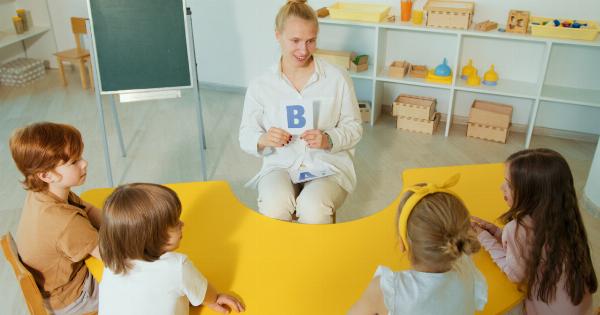As we grow up and become adults, we often forget what it’s like to be a child. We lose sight of the simple joys and pleasures that once brought us happiness, and we become more focused on the responsibilities and stresses of our daily lives.
But what if we could hold onto that childlike wonder and joy and bring it into our adult lives? Here are some ways in which that might look:.
Playfulness
Children are naturally playful, and they find joy in simple things like toys, games, and imagination. As adults, we often feel like we no longer have time for playfulness or that it’s somehow immature.
But what if we embraced that spirit and allowed ourselves to be playful again? We might rediscover our creativity and find new sources of joy and inspiration.
Curiosity
Children are endlessly curious about the world around them. They ask questions, explore new places, and try new things with a sense of wonder and excitement.
As adults, we sometimes feel like we already know everything or that there’s nothing new to discover. But what if we approached life with the same curiosity and openness as a child? We might learn new skills, discover hidden passions, and find a renewed sense of awe at the world around us.
Authenticity
Children are unafraid to be themselves, even if that means being silly, weird, or unconventional. They don’t try to fit in or conform to societal expectations.
As adults, we often feel pressure to fit into certain molds and present ourselves a certain way to the world. But what if we let go of those expectations and allowed ourselves to be truly authentic? We might form deeper connections with others, find more fulfillment in our relationships and careers, and feel more confident and comfortable in our own skin.
Gratitude
Children are often grateful for the simplest things, from a new toy to a sunny day to a hug from a loved one. They don’t take these things for granted and are quick to express their thanks.
As adults, we sometimes forget to be grateful for the blessings in our lives, focusing instead on what we don’t have or what’s going wrong. But what if we adopted a more childlike sense of gratitude and appreciation? We might find greater contentment and peace in our lives, and we might also inspire others to do the same.
Relationships
Children often form friendships and bonds with others based on shared interests and a mutual sense of fun. They don’t judge based on appearances or background and are quick to forgive and forget.
As adults, we sometimes become more guarded and skeptical, fearing rejection or disappointment in our relationships. But what if we approached our friendships and relationships with the same open-heartedness and acceptance as a child? We might form deeper connections with those around us and cultivate more loving and fulfilling relationships.
Wonder
Children are amazed by the beauty and mystery of the world around them. They see magic and wonder in everyday things and are filled with a sense of awe and reverence.
As adults, we often become jaded or cynical, losing sight of the wonder and beauty that still surrounds us. But what if we reclaimed that sense of wonder and allowed ourselves to be amazed by the world around us? We might find greater meaning and purpose in our lives and feel more connected to the natural world.
Creativity
Children are naturally creative and imaginative, constantly coming up with new ideas and possibilities. They don’t limit themselves by what they believe is possible and are unafraid to experiment and try new things.
As adults, we sometimes become more risk-averse and less willing to take chances on our ideas. But what if we allowed ourselves to be more creative and imaginative, reclaiming that childlike sense of possibility and curiosity? We might come up with new solutions to old problems and find greater fulfillment in our work and hobbies.
Authentic Emotions
Children are unafraid to express their emotions honestly, whether that means crying when they’re sad or laughing when they’re happy. They don’t try to suppress or deny their feelings.
As adults, we sometimes become more guarded and emotionally closed-off, fearing vulnerability or judgment.
But what if we allowed ourselves to be more authentic in our emotions, reclaiming that childlike sense of emotional openness and honesty? We might form deeper and more meaningful connections with others, and we might also find greater peace and healing from our own emotions.
Imagination
Children have rich and wild imaginations, imagining fantastical worlds and characters and dreaming up elaborate stories. As adults, we often lose touch with that sense of possibility and creativity.
But what if we allowed ourselves to tap into our imaginations again, allowing ourselves to dream big and embrace the impossible? We might find new sources of inspiration and motivation, and we might also find a renewed sense of purpose in our lives.
Compassion
Children are often filled with a sense of empathy and compassion, feeling deeply for the struggles and suffering of others. They don’t judge or criticize others for their pain, but instead offer comfort, support, and love.
As adults, we sometimes become more jaded or cynical, less willing to open our hearts to others’ pain. But what if we reclaimed that sense of compassion and empathy, approaching others with kindness and understanding? We might form deeper and more meaningful connections with those around us and feel more fulfilled and connected in our lives.
Conclusion
Imagining what life would be like if adults had the joy of children can be a powerful exercise in rediscovering our own capacity for wonder, creativity, and joy.
By tapping into these qualities, we might be able to find greater fulfillment and happiness in our daily lives and cultivate more meaningful and loving relationships with those around us. So the next time you feel weighed down by the stresses and responsibilities of adulthood, try channeling your inner child and see where it takes you.






























